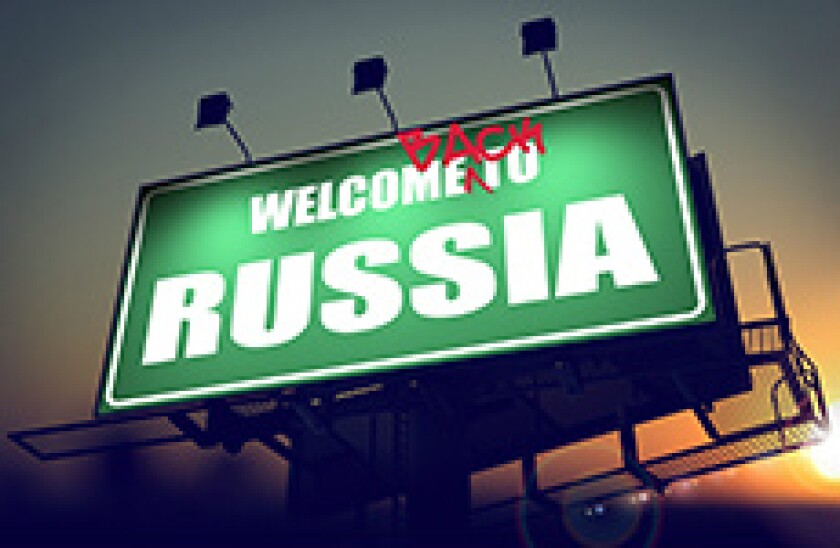European banks seem keener on doing business with Russians than their US and UK counterparts. A small band showed that willingness this week by signing a $425m pre-export facility with steelmaker Evraz, although that had been in the works since May.
Some European banks also claim they are open to discussing new deals. But while progressing with existing deals for non-sanctioned entities like Evraz and Slavneft Yanos sends a message of support to Russian borrowers, it’s a far cry from declaring that all deals can be done if only borrowers push hard enough.
No bank wants to say they are completely shut to Russia. But all banks want to be seen to be taking a position of super-equivalence with regard to sanctions (being more cautious than the letter of the law requires), rather than treading close to the line. BNP Paribas’ fine is very fresh in most banks’ memories.
As such, Russian borrowers must understand that all western banks are developing a new set of compliance procedures around Russian lending. That may take time and will hamper their ability to consider business until it is completed. US “refinements” on sanctions – such as the latest decision to bar companies that are majority owned by a combination of sanctioned individuals (rather than just one) – will not help speed up the process.
In the meantime, with more chance of Russia / Ukraine tensions escalating than not, there are few incentives for banks to lend if they don’t have to. The bond market is shut to Russia, so there is no ancillary business to tag on, and most deals would have to be purely about relationships. Either that, or keeping the loans bankers themselves in their jobs.
Loans bankers are in a very awkward position. They don’t need threats. What they need are good reasons to lend from borrowers, which they can take back to compliance. Perhaps this is vital funding for worthy or profitable projects, for companies that are nowhere near sanctions and resilient if Russia’s economy takes a further knock.
Even so, the variations and vagaries of US and EU sanctions, as well as the US’s changing relationships with its allies, will mean that willingness to do deals will vary from bank to bank.
But whatever each bank’s stock line, Russian borrowers should continue to cooperate rather than bully. If they can get deals done quickly with a smaller group of lenders then fine, but such concentrations lead to concentrated risk. Now is not the time for leaving relationships out in the cold.

